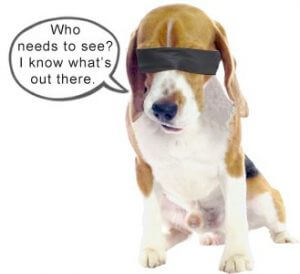Podcast: Play in new window | Download
 When Life seems to work against you… or does opposite of what you expected
When Life seems to work against you… or does opposite of what you expected
One of my teachers, via Ayn Rand, has been Aristotle.
He taught me one thing. Most people will not teach you much… they will attempt to do one thing and one thing only: alter your foundation.
And with regards to foundation altering: Aristotle’s teaching is the most jarring, and the most transformative.
Here is the teaching:
Contradictions do not exist. Whenever you think that you are facing a contradiction, check your premises.
If you are doing all the right things and still don’t get your results… that is a contradiction. Check your premises.
Premise is what you base your decisions on. Your premise is invisible… It is assumed to be accurate, assumed to be a fact.
If you…
- If you believe in god, then the existence of god is part of your premises.
- If you believe that the mind is the center of your power, then you’ll work on your mind
- And If you believe that there is such a thing as the subconscious mind… you’ll find ways to change your subconscious mind
- If you believe that parents should love their children… that is part of your premises
- If you believe that someone can love by deciding to love, that someone can be happy by deciding to be happy…
You believe hundreds, thousands, hundreds of thousands of things. They form your premises.
If life isn’t working
If life isn’t working, or isn’t working as well as it works for others: the difference between you and them is the premises you hold dear and near to your heart.
What you assume to be true is not true.
Depending on how many false assumptions you have in your worldview, your life works, or it doesn’t.
I don’t want to use the word ‘belief’, because what you call belief is all in the visible. and what we are talking about here is the invisible.
Nothing in the visible can change, unless the invisible changes first.
The problem is that the invisible is… yeah, you got that right, it’s invisible.
So to tease the invisible out, you need to do tricks, and methods, and processes. or they will not become visible.
One of the premises of meditation seems to be that they assume that if you sit long enough cross legged, you’ll see the invisible errors of your ways. Not true. and therefore most meditators’ vibration is as low or lower than the general population. Ugh, ugly.
One excellent tool for revealing untruths in your invisible foundation is the 67 steps. Even things, ideas, principles Tai just repeated but himself cannot see can be accessed through that program.
But there is a problem: unguided you will only see what you have already seen. That means that your foundation will remain the same. Your premises will remain the same. Even after listening to the program carefully.
Without guidance it won’t change your ‘mind’, your premises in any way.
If we look at reality as a house, you’ll get access to the doors, the windows, the furnishing, but you won’t be able to change the foundation. so your house may fly away if a tornado comes, or sinks with the foundation deeper and deeper until it breaks.
Truth value of your premises
Your premises are partially unexamined Tree of Knowledge, and partially mistaken assumptions based on poor understanding of the world.
They are your blind spots…
Invisible to you. I can see them.
Some of the invisibles are visible to someone with eyes to see. But you don’t want to hear it.
Roy Williams says in today’s Monday Morning Memo:
Blind Spot 2018
 Is established information or new information more likely to be true?
Is established information or new information more likely to be true?- Which is more effective, planning or improvisation?
- Are people essentially good, or essentially selfish?
- Which is more important, individual rights or collective rights?
- Will the future of America be better than its past?
- Are low-income people less intelligent than high-income people?
- Is the Bible true, or just a collection of ancient folk stories?
- Are attractive people more reliable than unattractive ones?
You may think those questions have obvious answers. But in truth, just as many people choose the opposite.
Each of us has foundational assumptions upon which our worldview is predicated.
If your foundational assumptions are different than mine, you’ll interpret experiences, evidence, and data differently than I do.
Psychologists call a foundational assumption a ‘cognitive bias,’ but only if your assumption is tightly focused. If we’re discussing your entire collection of foundational assumptions, we’re talking about your ‘schema.’
Your schema, or outlook, is how you believe the universe works.
Asking a person to reconsider a foundational assumption is like asking them to change their religion.
But every foundational assumption comes with a blind spot.
This is true even if your foundational assumptions caused you to answer our opening 8 questions by saying, ‘Well, it depends’…’
We often believe our foundational assumptions are shared by intelligent people everywhere.
Because when you ‘know’ something deeply and intrinsically, it’s hard to imagine other people not knowing it. This cognitive bias is often called ‘the curse of knowledge,’ and it’s responsible for a high percentage of bad advertising because it will cause you to answer questions in your ads that no one was asking.
Are you beginning to see why it’s important to be aware of your blind spots?
Most of us refuse to believe we have blind spots, because to accept that you have blind spots is to accept that your foundational assumptions are flawed, and then who would you be?
To point out another person’s blind spot is like undressing them in public; you will not be soon forgiven.
And now you know why polite people ‘never discuss politics or religion’ with people outside their own in-group.
And although this may sound Machiavellian, I share it with you not so that you might employ it, but so that you might guard yourself against it: It is easy to manipulate a person when you know their foundational assumptions.
Don’t let people manipulate you.
When you have the courage to recognize your foundational assumptions for what they are, you are more likely to be happy, more likely to be liked, more likely to experience personal peace.
But this open-mindedness comes at a price: you will never be the leader of villagers with torches and pitchforks.
But that was never really a goal of yours, was it?
Was it?
Roy H. Williams
Most of us refuse to believe we have blind spots, because to accept that you have blind spots is to accept that your foundational assumptions are flawed, and then who would you be?
To point out another person’s blind spot is like undressing them in public; you will not be soon forgiven.
Now we see, clearly, why I am not popular.
But if you don’t point out their blind spot: you cannot make a difference. You won’t make a difference. They will not be able to change their lives.
And if you do… you are devil incarnate…
He says in the same Monday Morning Memo:
When you have the courage to recognize your foundational assumptions for what they are, you are more likely to be happy, more likely to be liked, more likely to experience personal peace.
As you see, it takes courage to look, it takes courage to recognize.
My students, my clients have more courage than the average Joe. Because more than intelligence, you need courage.
And the world suffers with courage deficiency syndrome…
For example, doing the 67 steps being coached by me is no walk in the park. Doing it the way it was meant to be done: one step every weekday. read meditatively, with diffuse brain mode, definitely not a walk in the park.
But did you expect your life, your situation to change without effort? Without doing things that are explosive fun?
Look and detect a fundamental flaw in your premises…
My mother drilled it in me: no pain no gain.
And that, my friend, is a sound premise for life. Maybe the only thing my mother gave me that I appreciate. But I appreciate it more than words can express.
 PS: If you see the point, and if you can summon courage, I’d like you to take the 67 step coaching… for 18 months. Paying weekly it cost roughly a thousand dollars.
PS: If you see the point, and if you can summon courage, I’d like you to take the 67 step coaching… for 18 months. Paying weekly it cost roughly a thousand dollars.
PS: One of my most diligent students bumps up again and again the same thing. People get offended by what she says.
So what would be the underlying premise that is invisible to her?
She is trying hard not to be nothing. She really really really wants to be something.
But on the level of nothing and something she cannot change her life.
The underlying premise is that she lives as if the world were a world of objects, and she herself were an object. Not a person. Not a being. But an object who, like a billiard ball, lives through bumping up against other billiard balls.
Until and unless she can start living as a person, in a world of persons, nothing can change for her.
